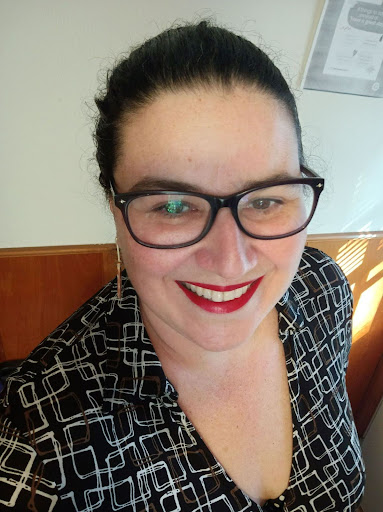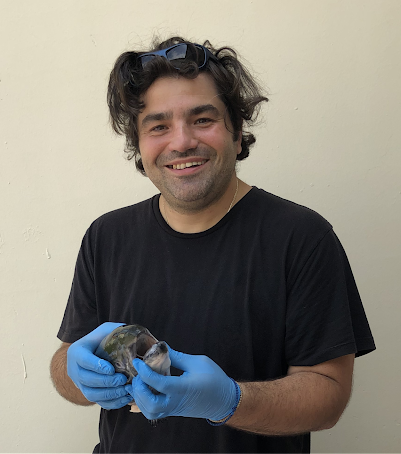Preface
Demetrios Brellas and Vanessa Martinez
Welcome to Shared Voices: An Introduction to Cultural Anthropology.
We are excited to share this with you all. We decided to remix a textbook for our Cultural Anthropology courses to address the lack of current, reliable and relevant resources for introductory anthropology courses that center equity and anti-racism. Our goal is to have the final product be a textbook that is culturally responsive and inclusive with an anti-racist and global citizenry perspective. We want to center marginalized voices, stories, and community engagement and organizing. We want to include research stories and ethnographic work by Latinx scholars, and other BIPOC folks. Our hope is to represent the stories of these communities and their voices through the on-going development of this book.
Our teaching pedagogy always involves both a historical, and contemporary lens, on the topics covered in the course. This includes, but is not limited to, culture, language, politics, religion, expressive culture, race, gender. Flexibility in modality and timing is built into this course. We work to actively respond to and provide support for student needs while maintaining a high standard of education in our courses.
Our approach to cultural anthropology centers equity and focuses on anthropology’s potential to change the world. We see the interconnectedness of humans and their cultural practices is integral to better human communication. In all of the chapters, we emphasize the comparison of cultures, the ways of life of different peoples, and the importance of becoming a truly global citizen by resolving some of the most critical issues facing our world today. In our complicated world of increasing migration, nationalism, and climate challenges, cultural diversity might actually be the source of conflict resolution and provide us with new and old approaches to ensuring a healthier world. This book brings together anthropological stories to inspire the next generation to use anthropological theories and methodologies to improve the lives of people the world over. We need you, as students, to see the possibilities. As instructors, we want to help you easily share anthropological knowledge and understanding. We want all readers to be inspired by the intensely personal writings of the anthropologists who contribute to this volume.
About the remixing process
The original book which forms the ‘bones’ of this remixing project, Perspectives, an Open Introduction to Cultural Anthropology, is one that we have both used in our courses. This work is different from other introductory textbooks, in that it is an edited volume with each chapter originally written by a different author and now edited by two other anthropologists.
For students, we promise readable and interesting writing on topics that tend to be covered in a first year anthropology course. The chapters contain links and reading questions to support your use and enjoyment of the book. The questions, videos and other links are designed to help you better learn the material. Feel free to use this book, even if it is not your course text, and then ask your instructor the tough questions! Use email to send us questions and/or comments.
- Dr. Vanessa Martínez (vmartinez@hcc.edu)
- Dr. Demetrios Brellas (dbrellas@framingham.edu)
For instructors, we invite you to build your own book, the perfect book for your course. We promise a user friendly and adaptable text that provides you with some great conversation possibilities for your class. The available chapters mirror the lecture topics in many first-year courses. The chapters form a whole and they can also stand alone. Choose the ones you need.
This new remixed edition furthers the mission of open educational resources while centering equity, culturally responsive pedagogy, and universal design. We are particularly interested in ensuring that the world is made better for our most vulnerable and believe that anthropology has the potential to do just that.
What Comes Next?
The work to remix this book is an ongoing process. In the current version we present the first phase of this work which encompasses the first seven chapters. We are currently developing the next seven chapters as well as an in-depth instructor’s resources package. One of the greatest challenges in teaching anthropology is coming up with relevant and equity-based activities and resources for instruction. We are in the process of compiling an extensive collection of teaching resources as well as student assessment tools such as journal assignments, activities, and more.
Meet the Authors

Originally from San Sebastian, Puerto Rico, Vanessa E. Martinez-Renuncio, Ph.D., is an experienced health anthropologist, professor, trainer, non-profit professional and leader in the areas of justice, cultural humility and culturally responsive pedagogy. With over twenty years of experience working in higher education colleges, my focus has been on building campus and community wide equity and inclusion initiatives and programs to support student retention, graduation, and transfer. She works full time at Holyoke Community College as Professor of Anthropology and Honors Program Coordinator. She is also a co-founder of The Women of Color Healthy Equity Collective (The Collective), a movement building non-profit in Western Massachusetts whose mission is to ensure girls and women of color are able to achieve optimal health. She received her Master’s in applied medical anthropology from Georgia State University in 2002 and her PhD in anthropology with a focus in health and medicine from the University of Massachusetts Amherst in 2014. She currently resides in Holyoke, Massachusetts, with her partner Jamie and her daughter Alejandra. Her favorite activities involve dancing, going on adventures with her family and enjoying time on a beach.

Born to Greek immigrant parents in Queens, New York City, Demetrios James Brellas, Ph.D., is an anthropologist, archaeologist, researcher and educator. He received his doctorate in Archaeology from Boston University in 2016. His graduate work focused on the socioeconomic role of wetland environments and their resources in ancient Mesopotamian civilizations. He has conducted archaeological fieldwork throughout the Mediterranean and Middle East including: Turkey, Syria, Iraq, and Italy. Most recently, his research takes place in Greece, where he is a part of several ongoing projects, which involve the analysis of animal as well as human remains. He is currently the team zooarchaeologist at the Molyvoti Thrace Archaeological Project (MTAP) in Greece, where he continues to research animal economies and particularly the role of sustainable wetland and marine ecosystem use in ancient complex societies. Before pursuing a graduate level career in archaeology he worked as a K-12 teacher. He also teaches several anthropology courses to high school students in the Boston MetroWest area through the College Planning Collaborative. Everyone learns differently and educators therefore must not take anything for granted when we speak. Therefore, his teaching philosophy focuses on finding the strategy that works for each student by using various teaching tools.
Thank you for adopting Shared Voices: An Introduction to Cultural Anthropology.
Demetrios Brellas, Framingham State University
Vanessa Martínez, Holyoke Community College
Attribution
Brellas, D., Martinez, V. (2023). Shared Voices: An Introduction to Cultural Anthropology. ROTEL. is licensed under a Creative Commons Attribution-NonCommercial 4.0 International License, except where otherwise noted.
Media Attributions
- Vanessa Martinez © Vanessa Martinez is licensed under a CC BY-NC-SA (Attribution NonCommercial ShareAlike) license
- Demetrios Brellas © Demetrios Brellas is licensed under a CC BY-NC-SA (Attribution NonCommercial ShareAlike) license

